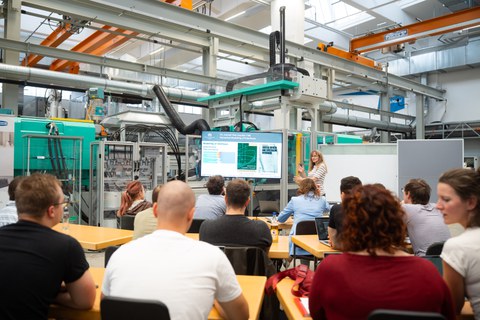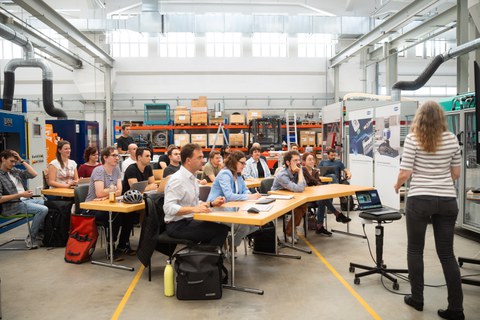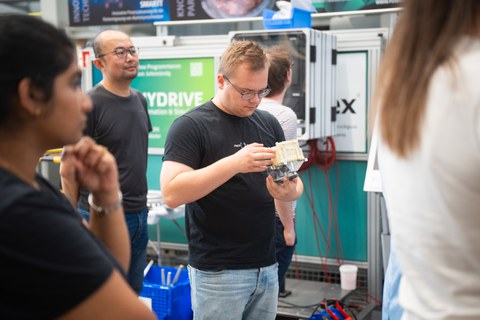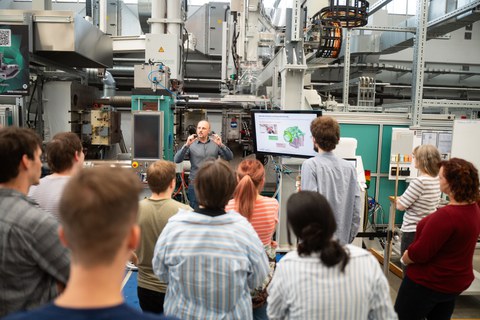Aug 14, 2025
Journal Club at LEIV: Exchange on boundary layers and post-treatment processes of printed metal structures
On August 6, 2025, another Journal Club of the RTG 2868 Research Training Group took place at the National Lightweight Engineering Validation Center (LEIV) of TU Dresden. More than 20 participants from various sub-projects came together to discuss current challenges and solutions in the description of boundary layers and the post-treatment processes of additively manufactured metallic metamaterials.
Two keynote speeches were held to kick off the event:
Prof.in Sibylle Gemming (subproject F1) introduced the topic and gave an insight into the numerical modeling of boundary layers. Subsequently, Zhengqing Wei (subproject F1) presented his current research results in the field of surface structure and reactivity of aluminum alloys, investigated by DFT.
In the second keynote speech, Prof. Julia Hufenbach (subproject M2) presented new considerations for the post-processing of PBF-LB/M. Building on this, Florian Lehmann (subproject F2) presented his experimental approaches to surface characterization and thus opened the discussion on practical implementation.
In the subsequent workshop, the participants discussed various fields of application and possibilities for further scientific cooperation within the framework of the research group. The discussions provided important impetus for interdisciplinary research in the field of additive manufacturing.
A particular highlight was the tour of the LEIV hall, during which various systems and technologies for the functionalization of metals were presented. The focus was on the unique DuoCast system, which combines a die casting and injection molding system and integrates additional process steps such as deburring. This system enables the production of innovative hybrid components in a single process step and underlines the site's high level of research and technological expertise.
The event provided an excellent platform for exchange and networking and once again highlighted the potential of RTG 2868 for the further development of future-oriented manufacturing processes.




